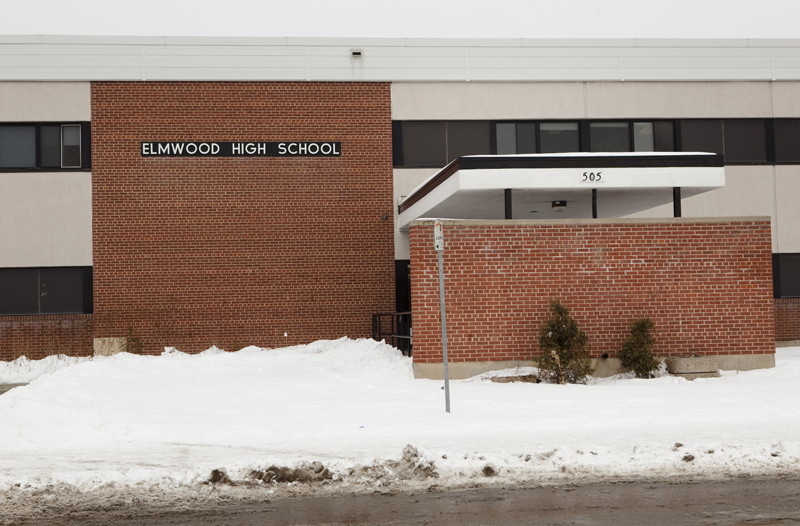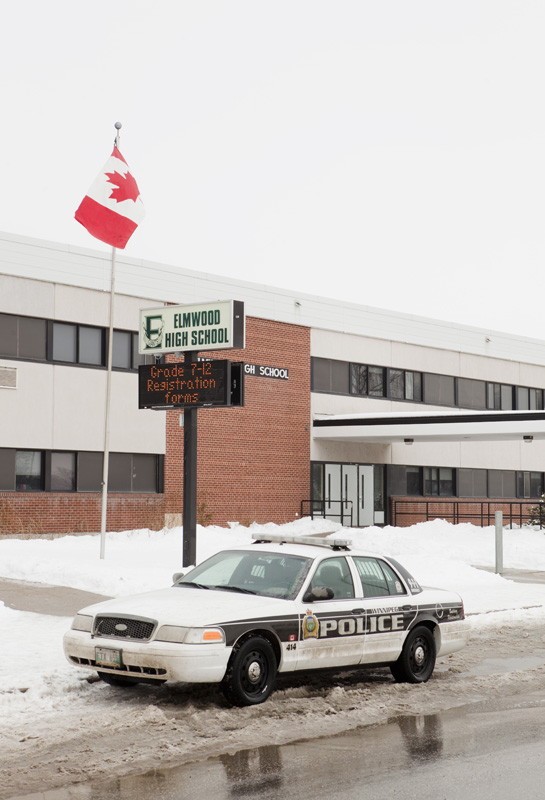Police walk Winnipeg school hallways
Response to SRO program overwhelmingly positive
Winnipeg high school students are a little less likely to think “trouble” when passing by a police officer in the hallway than they once were - probably because school resource officers (SROs) of the Winnipeg Police Service are going a step further to connect with the city’s youth.
Const. Poul Thagard, a school resource officer with the WPS, explained what he and other SROs do.
“Basically, we liaison between the WPS and the schools we work in,” he said. “If they have questions or concerns, helping to provide information is one of our duties.”
In addition, SROs are responsible for creating a personal connection between students and the WPS.
Const. Kevin Chinchilla, another of the city’s student resource officers, described the challenges and rewards involved with attempting to build relationships between himself and the students of his assigned schools.
“(Students) originally saw it as shocking,” he said. “But now when I walk into the schools, I don’t see that shock anymore. I’ve seen a really big change.”
However, the job isn’t without its unpleasant moments.
“I’ve had to arrest or warn kids,” Chinchilla said.
But overall, the experience seems to have been overwhelmingly positive for both Chinchilla and Thagard.
“Students will pull you aside and talk to you,” said Thagard. “Most of the time I’m out and about talking to kids.”
A general lack of public familiarity with the school resource officer program likely stems from its fluidity.
“It’s open-ended,” Thagard said. “Different schools have different needs. Different school administrations have different expectations - you have to adjust.”
The number of schools assigned to each officer varies, and officers are given the freedom to distribute their involvement between schools based on the unique atmosphere of each campus.
Mike Babb, principal of Elmwood High School, expressed his gratitude for the program.
“It’s building positive connections between the youth of the Elmwood community and the police,” he said. “Some of the kids were wondering about it at first, but they’ve found it to be a positive addition to the school.”
Babb also stated that Elmwood’s SRO, Const. Errol Brown - who has an office at the school and provides a consistent presence on campus - is a perfect fit in terms of personality for the job.
Melanie Nimmo, a professor of criminal justice at the University of Winnipeg and an expert in policing, also commended the program’s concept.
“I love it,” she said. “Particularly in the communities where we need it the most - that’s where we see a backlash against the police and reticence to talk to the police, and in fact a negative attitude toward police overall.
“If an officer is put in a school and the kids can start to relate to that officer as almost someone in a guidance-councillor role, then it challenges some of the stereotypes, like that ‘cops are all bad,’” she added.
“(Students) can begin to see an officer as someone who is a real person, and as someone who cares.”
Published in Volume 66, Number 22 of The Uniter (March 7, 2012)









